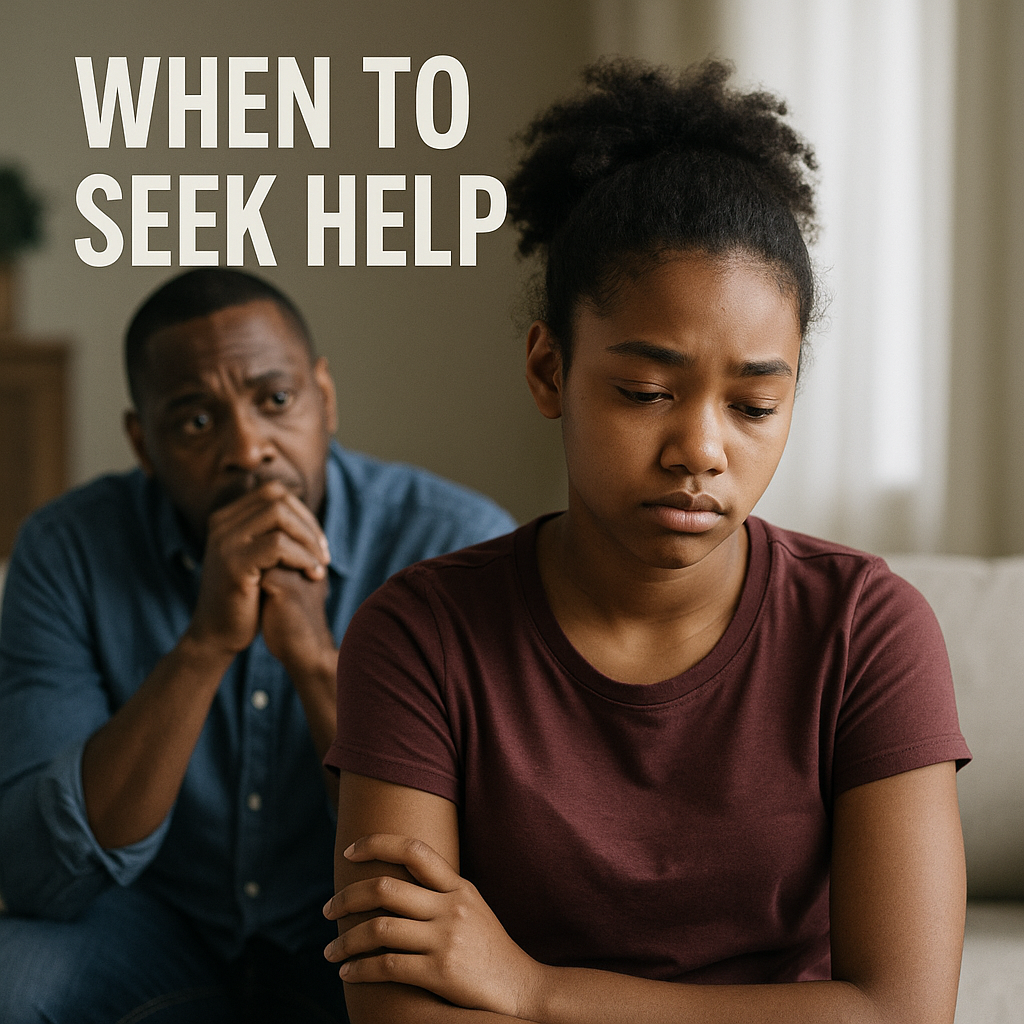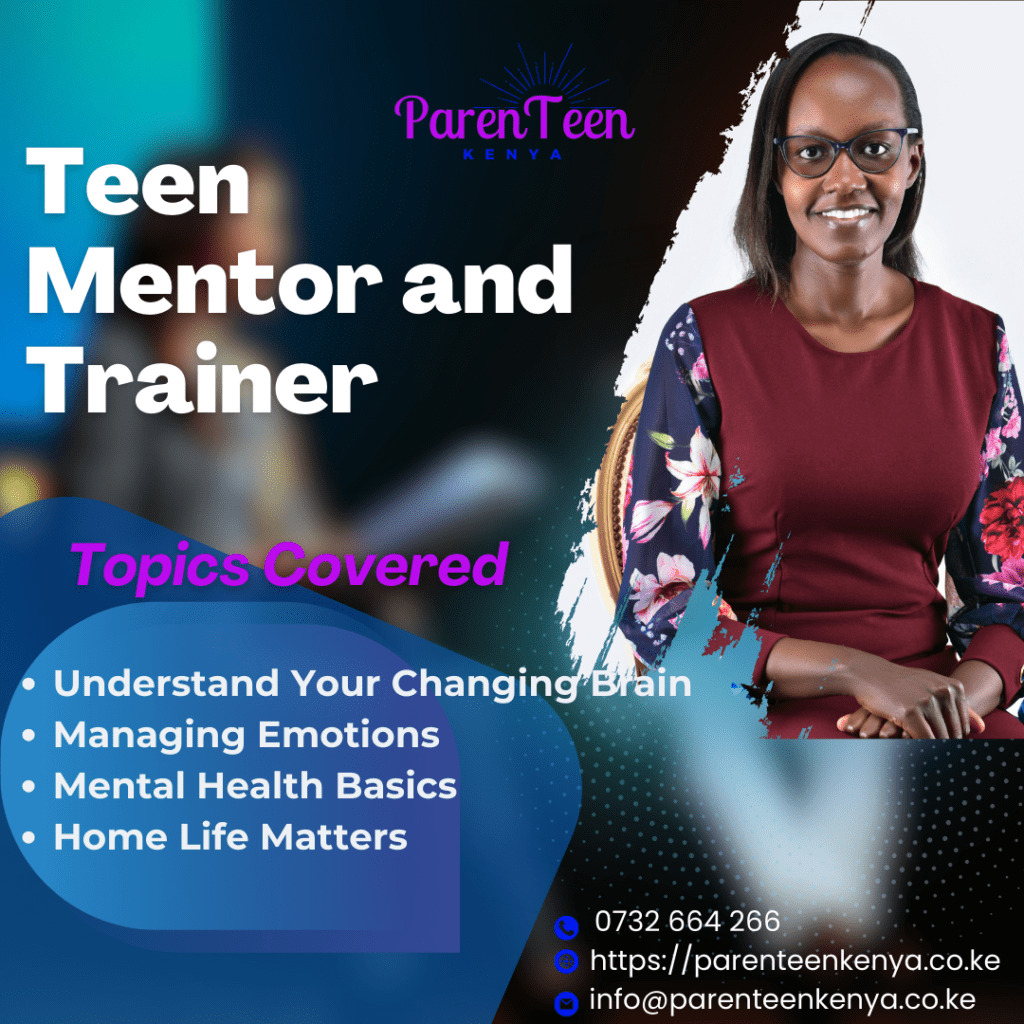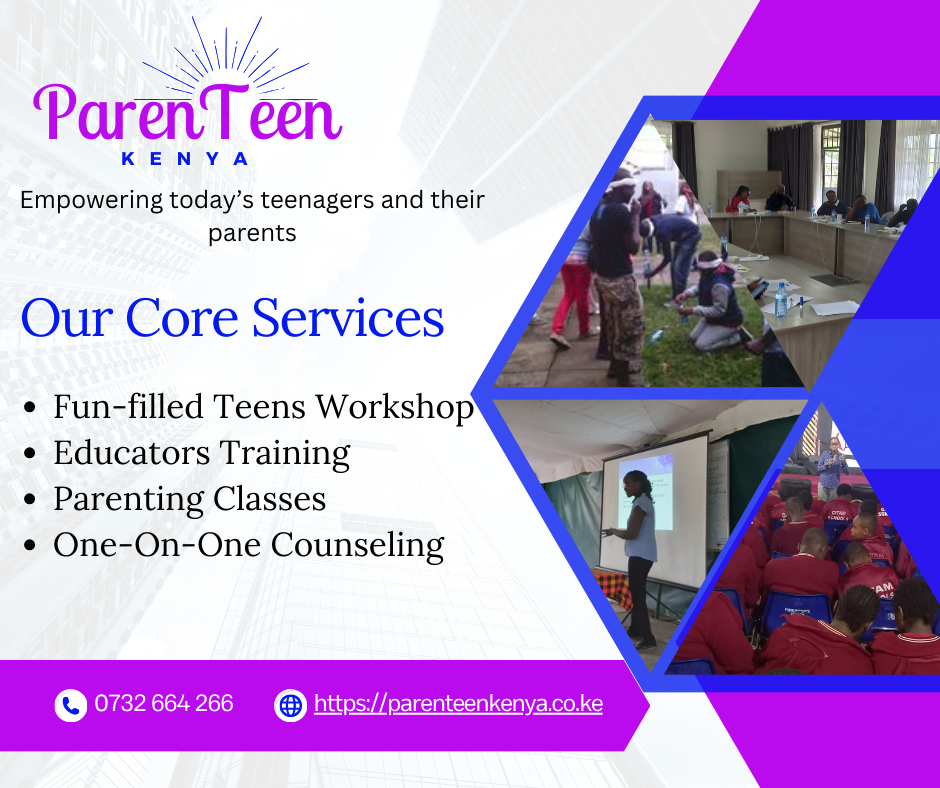When Pendo’s 15-year-old daughter, Zuri, began withdrawing after a tough school term, she worried something was terribly wrong.
Zuri no longer talked much, spent hours in her room, and often said she felt tired.”Concerned, Pendo took her to a doctor, who quickly suggested antidepressants.
Within days, Zuri was on medication, but months later, nothing had truly changed.
The pills dulled her emotions, yet the real issue: pressure, loneliness, and the need for connection, remained untouched.
Across many homes today, stories like Pendo’s are becoming common.
Parents, desperate to help, are turning to medication as a quick solution for their teen’s distress, often encouraged by doctors who have little time to explore deeper causes.
But are we solving the problem, or silencing emotions that need to be understood?
This article explores how we’ve begun treating normal teenage struggles like medical conditions, and why that’s a dangerous trend.
The Rise of the “Pill for Every Feeling” Culture in Kenya
Parenting today feels more complicated than ever.
The moment a teen shows sadness, worry, or irritability, many parents fear it’s depression or anxiety. In trying to help quickly, they rush to doctors, and often, medication becomes the first answer instead of the last resort.
We’ve slowly entered a culture where every uncomfortable feeling seems to need a pill.
This shift didn’t happen overnight. Between 2015 and 2020, antidepressant prescriptions for teenagers increased dramatically across many countries.
Social media amplified mental health awareness, which brought important benefits but also created new fears.
Kenyan Parents now worry that missing early warning signs could lead to tragedy, so they lean toward quick medical intervention.
Meanwhile, pharmaceutical advertising normalizes the idea that sadness requires medication, not support.
Parents are not to blame alone.
Many doctors, overwhelmed by short consultations and parental pressure, find it easier to prescribe antidepressants than to explore family stress, peer dynamics, or emotional maturity.
Insurance systems often favor brief medication appointments over longer therapeutic conversations.
The result? Your teen learns to depend on medication rather than developing resilience.
The consequences of this shortcut include:
- Teens missing out on emotional coping skills
- Families depending on chemical fixes rather than conversations
- Medications being prescribed without therapy or evaluation
- Side effects like fatigue, numbness, and appetite changes appearing unnecessarily
Medication can be a blessing when used right, but when used too early, it silences the very emotions that guide growth.
Teen sadness, anxiety, and confusion are not always illnesses. Sometimes, they are invitations for you to slow down and reconnect.
Learn more: When Teens Go Quiet: How to Break the Wall of Silence at Home
When Normal Struggles Become Misdiagnosed Symptoms

Adolescence is naturally emotional.
Teens face identity confusion, body changes, social competition, and pressure to succeed.
These can cause tears, withdrawal, or mood swings, but not all of that is mental illness.
The danger today is that normal emotions are being medicalized. A teen who’s quiet after an argument may simply be processing feelings, not showing symptoms of depression.
For instance, the teenage brain is still developing, particularly the prefrontal cortex responsible for managing emotions and making decisions.
What looks like overreaction is often a brain learning to handle big feelings with limited tools.
Hormonal changes during puberty naturally intensify every emotion.
A friendship conflict that an adult might brush off can feel devastating to a sixteen-year-old whose developing brain magnifies the experience.
Add academic pressure, social media comparison, and uncertainty about the future, and it’s no wonder your teen may feel overwhelmed.
The table below helps you see the difference between normal experiences and when to truly worry:
| Normal Teen Reactions | When to Worry |
| Moodiness after bad grades | Ongoing sadness or hopelessness |
| Wanting privacy sometimes | Total isolation and loss of interest |
| Stress before exams | Panic attacks or avoidance of school |
| Arguments with parents | Violent outbursts or self-harm |
| Tiredness after busy days | Consistent fatigue or inability to focus |
A parent’s calm observation is often more powerful than a prescription.
Before seeking medication, explore what’s happening at school, among peers, or within the home. Talk to teachers, notice friendship changes, and ask about sleep patterns.
Many times, emotions are signs of deeper needs, for rest, safety, or belonging.
Mislabeling normal reactions as disorders teaches your teen to fear their feelings instead of understanding them.
The following video guides you on how to help a struggling teen.
The Role of Parents: Connection Before Correction
Before any doctor or therapist, a parent’s presence is a teen’s first medicine.
When emotions seem big, parents often correct behavior before connecting to the feeling behind it.
But a teen’s healing begins when they feel seen, not fixed.
Research consistently shows that adolescents with at least one trusted adult they can confide in demonstrate better emotional outcomes, regardless of other challenges they face.
The challenge is that modern life works against meaningful connection.
Parents juggle demanding jobs, household responsibilities, and their own stress.
Teens spend hours on devices, creating the illusion of socializing while feeling increasingly lonely.
Families eat dinner separately, rushing between activities. In these situations, emotional struggles go unnoticed until they escalate into crisis.
You can provide emotional stability by:
- Listening without rushing to advice or judgment
- Offering empathy; “That must have been hard,” instead of “Why are you upset again?”
- Encouraging rest, creativity, and time away from screens
- Checking in consistently, not only when there’s a problem
- Allowing space for failure and recovery
When 15-year-old Daniel began skipping homework and sleeping more, his mother feared depression. Before calling a doctor, she started short evening walks with him. Over time, he admitted feeling pressured to meet his father’s academic expectations. Together, they agreed on realistic goals. His mood lifted, no prescription needed.
Connection regulates emotion better than medication ever can. When you slow down to understand, you give your teen the safety to heal naturally.
Related: 70 Questions to Ask Your Teenager to Strike Up a Conversation
When Medication Helps, and When It Doesn’t
There are moments when medication saves lives, but many times, it’s prescribed too quickly.
True depression or anxiety that severely disrupts a teen’s functioning may require medical support.
But giving antidepressants to a teen simply coping with normal stress can create unnecessary harm.
The difference matters because antidepressants alter brain chemistry, and developing brains are particularly sensitive to these changes.
Some teens genuinely need medication that therapy alone cannot address.
Severe clinical depression with serious suicidal thoughts, debilitating panic attacks, or paralysing anxiety so intense it prevents daily functioning are legitimate medical conditions.
In these cases, medication combined with therapy can be life-changing.
However, medication should never be the only intervention or a substitute for addressing underlying issues.
Here’s a simple guide to help you discern the difference:
| When Medication is Required | When Medication Isn’t Required |
| Severe depression, suicidal thoughts | Temporary sadness after stress or loss |
| Frequent panic attacks disrupting school or sleep | Everyday worry about performance or friends |
| Combined with therapy and family involvement | Used alone without emotional support |
| After thorough assessment by a human-centered and not medication-centred psychiatrist | After one brief consultation or parental request |
When taken unnecessarily, these medications can cause:
- Emotional numbness and detachment
- Drowsiness, dizziness, or nausea
- Reduced motivation and dependency
- Agitation or mood changes
- Unnecessary side effects
Medication can support healing, but it should never replace therapy, parental care, or understanding.
Why Experiencing Emotions is Necessary for Growth
Every emotion, even painful ones, plays a role in helping teens grow into strong, self-aware adults.
Sadness teaches empathy, disappointment builds resilience, and anxiety encourages preparation.
When we medicate away every feeling, we rob our teens of these lessons. Emotions are information, telling us what matters and what needs attention.
A teen who never experiences discomfort never learns how to navigate it.
Think about learning to ride a bike. Falling down is uncomfortable, even scary, but it teaches balance and perseverance.
Similarly, emotional struggles teach teens about their values, boundaries, and inner strength.
When parents rush to eliminate all discomfort, teens miss the chance to discover their own capacity to cope, recover, and grow stronger.
You can nurture emotional growth by:
- Encouraging your teen to describe what they feel instead of labeling it “bad”
- Teaching them that failure and rejection are normal parts of growth
- Modeling calmness and patience during stress
- Using faith or family values to bring comfort and perspective
- Seeking therapy as a space for growth, not just crisis
Your teen don’t need a pill to become okay, they need consistent love and a safe space to process life.
The goal is not to erase emotions but to guide your teen through them until they learn that being human includes joy, pain, and everything in between.
Building a Stronger Teen Together
At ParenTeen Kenya, we believe healing happens through connection more than medication.
Our therapy services provide teens with professional support to handle emotions healthily, while our specialized training workshops equip both parents and teens with practical tools for better communication and emotional resilience.
We’ve seen countless families transform when they learn to understand rather than medicate, to connect rather than correct.
Whether your teen needs individual therapy or your family wants to build stronger bonds, we’re here to guide you every step of the way.
Contact PTK today to schedule a consultation or join our next parent-teen workshop.
Jane Kariuki is a devout Christian, Clinician, Psychologist, and founder of ParenTeen Kenya. She authored an exceptional training manual used in her teens’ workshop and an instructional guidebook for her parenting classes. If she is not training, blogging, or counseling, Jane loves to spend time with her sweet husband and three children.








[…] Learn more: Are Kenyan Parents Treating Teen Emotions Like Disorders? […]